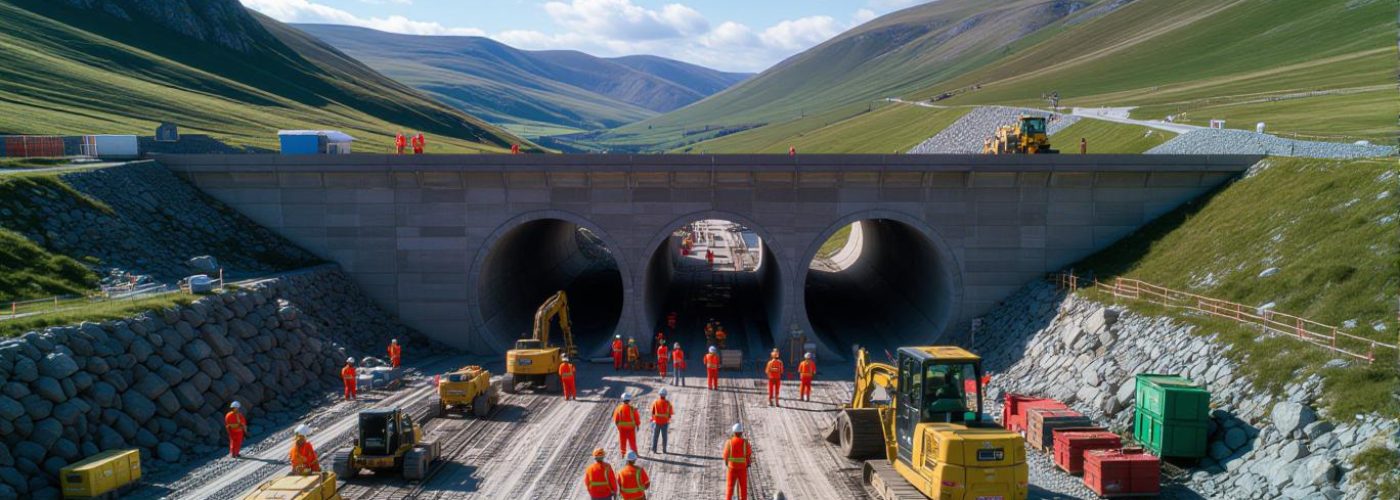- Infrastructure project worth circa £3bn to upgrade 110 km water pipeline system in North West England
- STRABAG, alongside its partners Equitix and GLIL Infrastructure, have formed Cascade Infrastructure Limited to manage the finance, design, build and maintenance
- STRABAG UK Limited will deliver the design and build of the project
- The existing aqueduct has been serving the 2.5 million people across Cumbria, Greater Manchester and Lancashire for 70 years and now requires upgrading
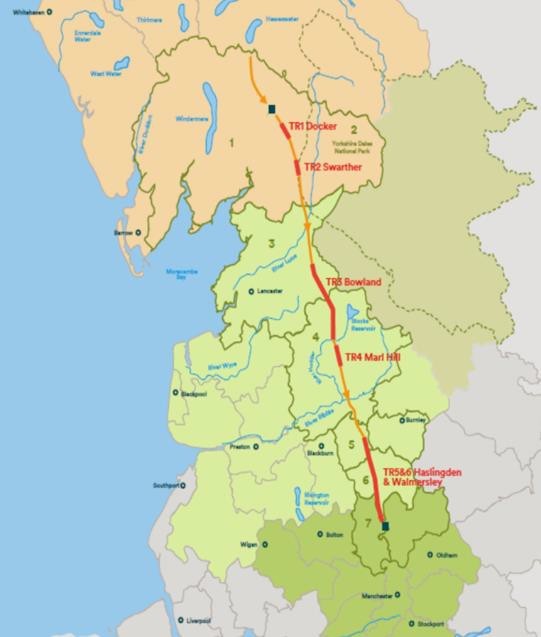
STRABAG are pleased to announce that they have achieved financial close and have been awarded the contract to deliver the Haweswater Aqueduct Resilience Programme, otherwise known as HARP, for United Utilities.
HARP is a major scheme to maintain drinking water supplies across Cumbria, Lancashire and Greater Manchester for future generations. The Haweswater Aqueduct is a 110km pipeline which runs from the Lake District, through Lancashire and into Greater Manchester. Originally constructed between 1933 and 1955, the pipeline needs essential upgrade work and will see the replacement of the existing tunnels sections.
The overall estimated project construction costs will be in the region of £3bn. The complex construction and maintenance programme is the first in the UK water sector approved by Ofwat to be delivered through a Direct Procurement for Customers (DPC) model.
The infrastructure project will bring a range of economic benefits to the region and will create local jobs and apprenticeship opportunities.
STRABAG, alongside its partners Equitix and GLIL Infrastructure, have formed Cascade Infrastructure Ltd, the project company responsible for the project agreement with the client, United Utilities. The contract includes finance, design, build and maintenance of six tunnel sections of the pipeline.
STRABAG UK Limited will deliver the full design and construction scope of the project. The build phase is planned to run over nine years followed by a further 25 years of maintenance.
STRABAG CEO, Stefan Kratochwill said:
“Expanding our presence in the UK and investing in critical water infrastructure is a clear step in delivering on our Strategy 2030. With HARP, we are not only contributing to the long-term resilience of critical infrastructure, but also strengthening our market position in the UK”.
STRABAG UK Ltd Managing Director, Simon Wild, added:
“The award of the HARP design and construction contract to STRABAG UK Limited recognises the capability and depth of competence we have built up over the past years. We will deliver this critical national infrastructure focussing always on best value, working closely with local communities and creating high quality opportunities for skills development and long-term employment in the North of England.
We are immensely proud of the way our teams have collaborated to achieve financial close and look forward to continuing this partnership for years to come on such a significant project.”
Louise Beardmore, Chief Executive at United Utilities, said:
“Making the North West stronger, greener and healthier is at the heart of everything we do. Today marks a significant step to ensure we have the right infrastructure to provide a resilient water supply to communities right across the region for decades to come and, at the same time, creating hundreds of great quality jobs and delivering on the commitments and promises we have set out.”
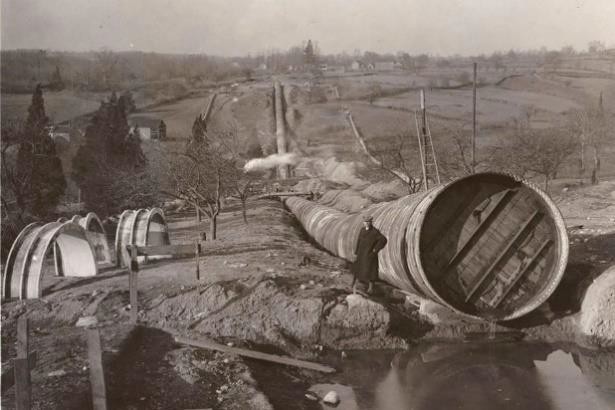
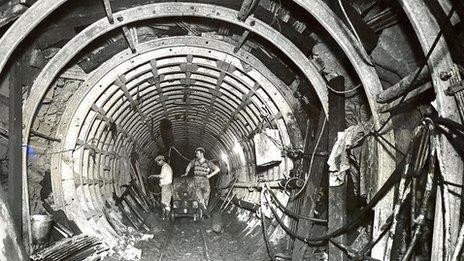
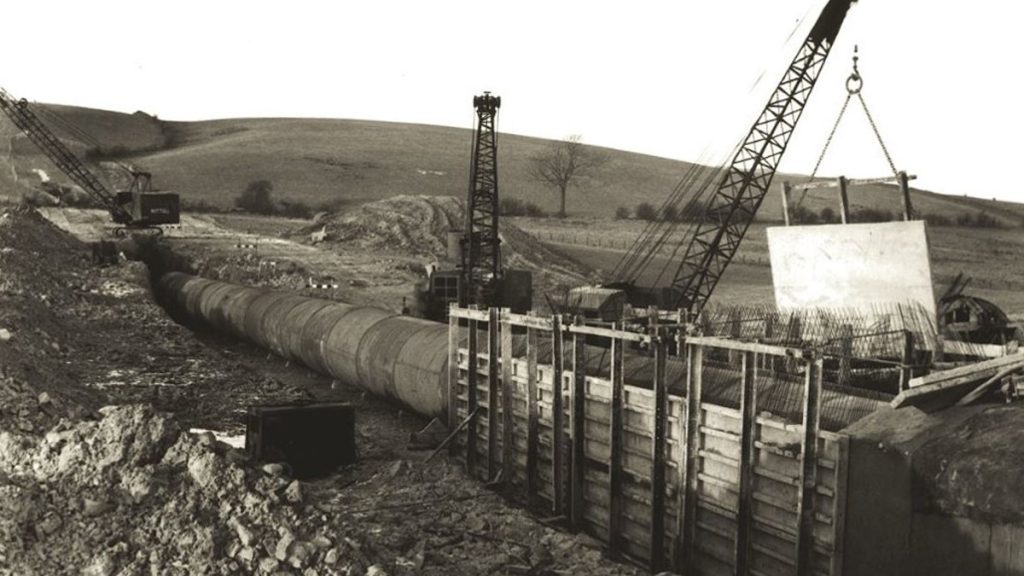
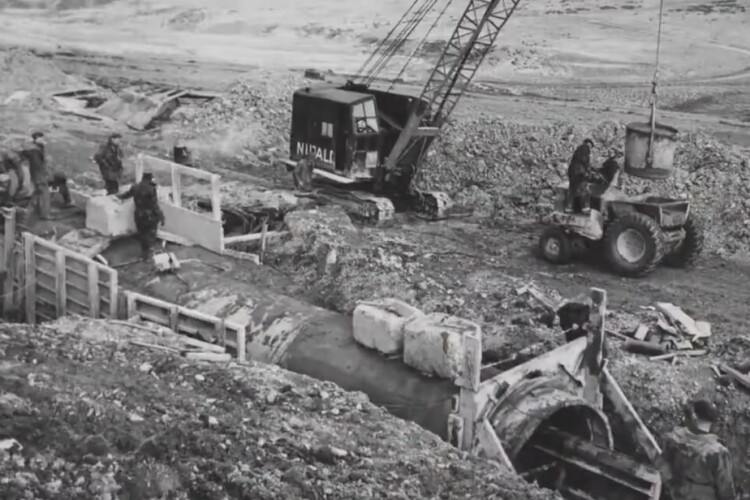
Additional Information
In PR19, Ofwat developed the Direct Procurement for Customers (DPC) approach, building on the success of Thames Tideway Tunnel. DPC involves a water or wastewater company competitively tendering for services in relation to the delivery of certain major infrastructure projects, resulting in the selection of a third-party competitively appointed provider or ‘CAP’ who will design, build, finance, and in some circumstances operate and/or maintain the relevant infrastructure. DPC will result in water companies competitively procuring more aspects of an infrastructure project, including financing for the project.
The original 110km pipeline was constructed between 1933 and 1955 by the Manchester Corporation – the then local authority. The renewal programme will see the six tunnel sections replaced.
Building, Design & Construction Magazine | The Choice of Industry Professionals


